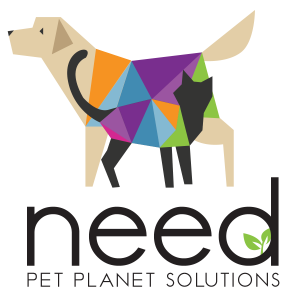Dr. Al Townshend
Pet obesity and the effects of a pet being overweight can significantly impact its long-term health. The 2018 survey of veterinary clinics by the Association for Pet Obesity Prevention estimates that 60% of cats and 56% of dogs in the United States are overweight or obese. Dr. Ernie Ward, the association’s founder, states, “Obesity is the number one health threat pets face, and the most important pet health decision [Guardians] make each day is what and how much they feed.”
A pet’s food and treats that encourage an overweight body conformation are unnecessary expenses. Still, more importantly, they encourage an increased risk of medical conditions that lower a pet’s quality of life, shorten the lifespan, and can cost the Guardian tremendous heartache and unavoidable economic expense.
Obesity has been shown to cause chronic, low-grade inflammation, which encourages or exacerbates diseases such as osteoarthritis and hypertension. Obesity increases the risk of metabolic and endocrine disorders, especially diabetes, respiratory disorders, kidney disease, heart disease, and even cancer.
Preventing a pet from becoming overweight or obese is obviously the best. Still, statistics make it clear that over half of the pet population is already suffering the effects of excess weight. For those Guardians with an overweight pet, recognizing a pet is too heavy and committing to regaining an ideal, slightly lean body condition is one of the most significant decisions a Guardian can make for the pet’s long-term health.
How do I know my pet is overweight?
Many Guardians are not aware that their pet may be overweight or obese. Guardians often underestimate their pet’s body condition. Certain breeds like the Labrador Retriever may have a genetic predisposition toward obesity. Many believe that a disruption in the gut microbiome (the sum of all the organisms in the digestive tract) can affect weight.
Many veterinarians use a Body Condition chart when discussing a pet’s health. There are several different charts for both dogs and cats available on the internet. Below is an example of a typical chart.
Three is a normal body condition, 1 and 2 are examples of underweight animals (except for athletic working or agility dogs), and 4 and 5 are considered overweight and obese examples.
Recognizing where your pet fits in the chart is the first step in correcting the problem.

Now that I am aware that my pet is overweight, how do I correct the problem?
Guardians must understand that they have 100% control or what their pet eats and how much exercise the pet gets each day. The goal is fewer calories and more exercise for most pets. That’s not as easy as it seems. We love our pets, and it is difficult to resist a pet’s efforts to get more food.
The simplest and most cost-effective solution is to feed less of the current food and increase the daily exercise regimen for the pet. The Guardian will save on the cost of the food and reduce the risk of costly veterinary visits.
Increasing the daily exercise regimen is often all that is needed to get the weight off and keep it off. Check out the wide selection of leashes, collars, and harnesses for long daily walks and play. Find the right toys that can help stimulate and increase exercise for both dogs and cats. You’ll find a wide range of quality choices at you Pet Planet store and online at https://shoppetplanet.com.
Many Guardians need help with feeding less because it does not fill the stomach and satisfy the appetite. It can encourage bad behavior like getting into the garbage or stealing food from the counter or table.
Frequent, smaller meals of low-calorie or low-fat foods with added fiber can help satisfy appetite Fiber is not digestible, so it can fill the stomach, satisfy the appetite while not increasing calories. Frequent, smaller meals of lower calorie increased fiber diets can help Guardians overcome the urge to beg and get the weight off. Check out the special diets and low calorie treats that support weight loss at your favorite Pet Planet store or on the web at https://shoppetplanet.com
Topping a dry, wet, or even a raw diet with natural fiber sources such as canned pumpkin can be an easy solution to appetite and fewer calories. Adding water to a dog or cat’s wet or raw food (there are no calories in water) dilutes the food, lowers calories per cup while filling the stomach and helping to satisfy appetite.
Mealtime should be watched closely, especially in multiple pet families. Overweight pets tend to eat quickly and steal food from others. If necessary, feed those pets behind closed doors.
If additional support is an option, some supplements can also help. Check them out at your Pet Planet store or online at https://shoppetplanet.com
- Probiotics can improve digestion and bring the gut biome back to a normal state
- L-carnitine is an amino acid known to encourage fat metabolism
- Fish oils rich in Omega 3 fats can have a direct effect on heat and energy production at a cellular level.
- Chew toys can distract a pet and take the focus away from food at difficult times such as holidays and family meal time.
Maintaining a slightly lean body condition through proper nutrition and regular exercise are the most important Guardian considerations when it comes to helping a pet live a long, happy, and healthy life.




